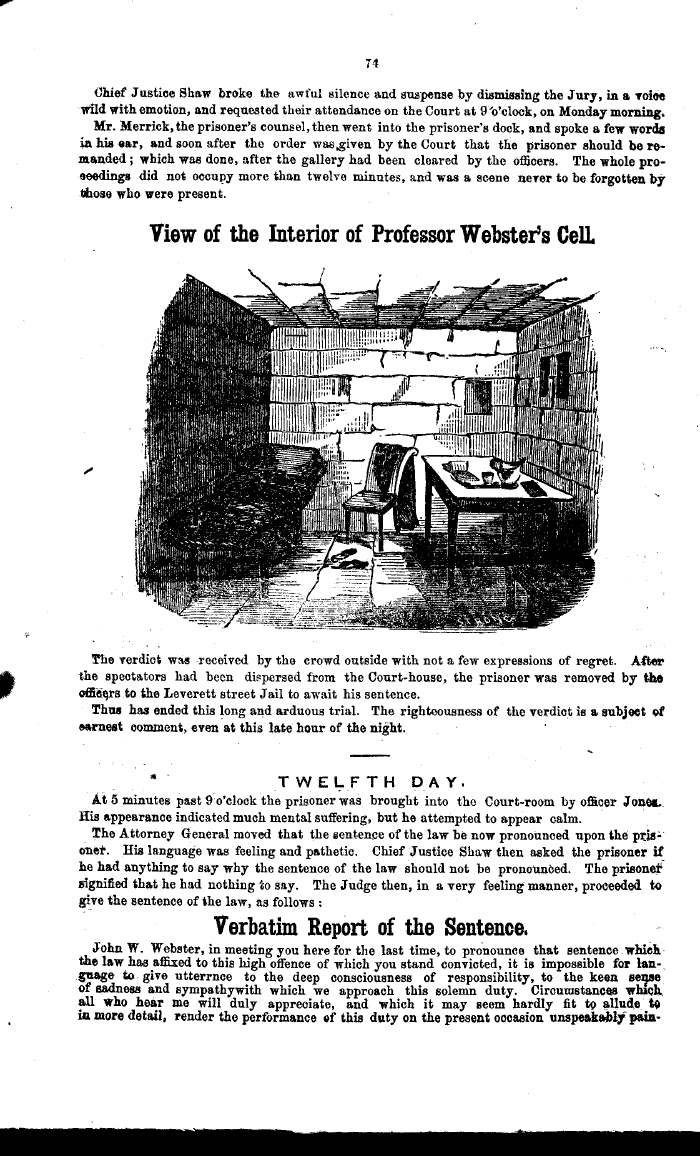|
74
Chief Justice Shaw broke the awful silence and suspense by dismissing the
Jury, in a voice
wild with emotion, and requested their attendance on the Court at 9
o'clock, on Monday morning.
Mr. Merrick, the prisoner's counsel, then went into the prisoner's dock,
and spoke a few words
in his ear, and soon after the order was,given by the Court that the
prisoner should be re-
manded; which was done, after the gallery had been cleared by the officers.
The whole pro-
aeedinga did not occupy more than twelve minutes, and was a scene never to
be forgotten by
those who were present.
View of the Interior of Professor Webster's Ce1L
The verdict w%s received by the crowd outside with not a few expressions of
regret. After
the spectators lied been dispersed from the Court-house, the prisoner was
removed by the
oi$ee;rs to the Leverett street Jail to await his sentence.
Thus has ended this long and arduous trial. The righteousness oŁ the
verdict is a subject of
earnest comment, even at this late hour of the night.
TWELFTH DAY.
At 5 minutes past 9 o'clock the prisoner was brought into the Court-room by
officer Joaea..
His appearance indicated much mental suffering, but he attempted to appear
calm.
The Attorney General moved that the sentence of the law be now pronounced
upon the pr_9n=-
onet. His language was feeling and pathetic. Chief Justice Shaw then asked
the prisoner if
he had anything to sap why the sentence of the law should not be
pronounced. The prisoner
signified that he had nothing to say. The Judge then, in s very feeling
manner, proceeded to
give the sentence of the law, as follows
Verbatim Report of the Sentence.
John 1V. Webster, in meeting you here for the last time, to pronounce that
sentence, which
the law has awed to this high offence of which you stand convicted, it is
impossible for laa-
gnage to. give utterrnce to the deep consciousness of responsibility, to
the keen aeipe
of sadness and sympathywith which we approach this solemn duty.
Cirounistanoea which
all who hear me will duly appreciate, and which it may seem hardly fit tg
allude to
in more detail, render the performance of this duty on the present occasion
unspeakably pain-
|

